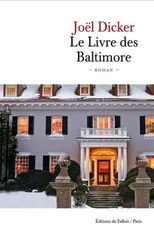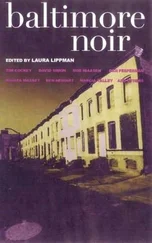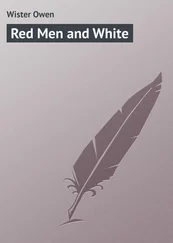Owen Wister - Lady Baltimore
Здесь есть возможность читать онлайн «Owen Wister - Lady Baltimore» весь текст электронной книги совершенно бесплатно (целиком полную версию без сокращений). В некоторых случаях можно слушать аудио, скачать через торрент в формате fb2 и присутствует краткое содержание. Жанр: Вестерн, на английском языке. Описание произведения, (предисловие) а так же отзывы посетителей доступны на портале библиотеки ЛибКат.
- Название:Lady Baltimore
- Автор:
- Жанр:
- Год:неизвестен
- ISBN:нет данных
- Рейтинг книги:5 / 5. Голосов: 1
-
Избранное:Добавить в избранное
- Отзывы:
-
Ваша оценка:
- 100
- 1
- 2
- 3
- 4
- 5
Lady Baltimore: краткое содержание, описание и аннотация
Предлагаем к чтению аннотацию, описание, краткое содержание или предисловие (зависит от того, что написал сам автор книги «Lady Baltimore»). Если вы не нашли необходимую информацию о книге — напишите в комментариях, мы постараемся отыскать её.
Lady Baltimore — читать онлайн бесплатно полную книгу (весь текст) целиком
Ниже представлен текст книги, разбитый по страницам. Система сохранения места последней прочитанной страницы, позволяет с удобством читать онлайн бесплатно книгу «Lady Baltimore», без необходимости каждый раз заново искать на чём Вы остановились. Поставьте закладку, и сможете в любой момент перейти на страницу, на которой закончили чтение.
Интервал:
Закладка:
They did their work, my true words; the false impression flowed out of them as smoothly as California claret from a French bottle.
"I wonder who told you?" my victim remarked. "But it doesn't really matter. Everybody is bound to know it. You surely were the last person with him in the churchyard?"
"Gracious!" I admitted again with splendidly mendacious veracity. "How we do find each other out in Kings Port!"
It was not by any means the least of the delights which I took in the company of this charming girl that sometimes she was too much for me, and sometimes I was too much for her. It was, of course, just the accident of our ages; in a very few years she would catch up, would pass, would always be too much for me. Well, to-day it was happily my turn; I wasn't going to finish lunch without knowing all she, at any rate, could tell me about the left eye and the man in bed.
"Forty years ago," I now, with ingenuity, remarked, "I suppose it would have been pistols."
She assented. "And I like that better — don't you — for gentlemen?"
"Well, you mean that fists are—"
"Yes," she finished for me.
"All the same," I maintained, "don't you think that there ought to be some correspondence, some proportion, between the gravity of the cause and the gravity of—"
"Let the coal-heavers take to their fists!" she scornfully cried. "People of our class can't descend—"
"Well, but," I interrupted, "then you give the coal-heavers the palm for discrimination."
"How's that?"
"Why, perfectly! Your coal-heaver kills for some offenses, while for lighter ones he — gets a bruise over the left eye."
"You don't meet it, you don't meet it! What is an insult ever but an insult?"
"Oh, we in the North notice certain degrees — insolence, impudence, impertinence, liberties, rudeness — all different."
She took up my phrase with a sudden odd quietness. "You in the North."
"Why, yes. We have, alas! to expect and allow for rudeness sometimes, even in our chosen few, and for liberties in their chosen few; it's only the hotel clerk and the head waiter from whom we usually get impudence; while insolence is the chronic condition of the Wall Street rich."
"You in the North!" she repeated. "And so your Northern eyes can't see it, after all!" At these words my intelligence sailed into a great blank, while she continued: "Frankly — and forgive me for saying it — I was hoping that you were one Northerner who would see it."
"But see what?" I barked in my despair.
She did not help me. "If I had been a man, nothing could have insulted me more than that. And that's what you don't see," she regretfully finished. "It seems so strange."
I sat in the midst of my great blank, while her handsome eyes rested upon me. In them was that look of a certain inquiry and a certain remoteness with which one pauses, in a museum, before some specimen of the cave-dwelling man.
"You comprehend so much," she meditated slowly, aloud; "you've been such an agreeable disappointment, because your point of view is so often the same as ours." She was still surveying me with the specimen expression, when it suddenly left her. "Do you mean to sit there and tell me," she broke out, "that you wouldn't have resented it yourself?"
"O dear!" my mind lamentably said to itself, inside. Of what may have been the exterior that I presented to her, sitting over my slice of Lady Baltimore, I can form no impression.
"Put yourself in his place," the girl continued.
"Ah," I gasped, "that is always so easy to say and so hard to do."
My remark proved not a happy one. She made a brief, cold pause over it, and then, as she wheeled round from me, back to the counter: "No Southerner would let pass such an affront."
It was final. She regained her usual place, she resumed her ledger; the curly dog, who had come out to hear our conversation, went in again; I was disgraced. Not only with the profile of her short, belligerent nose, but with the chilly way in which she made her pencil move over the ledger, she told me plainly that my self-respect had failed to meet her tests. This was what my remarkable ingenuity had achieved for me. I swallowed the last crumbs of Lady Baltimore, and went forward to settle the account.
"I suppose I'm scarcely entitled to ask for a fresh one to-morrow," I ventured. "I am so fond of this cake."
Her officialness met me adequately. "Certainly the public is entitled to whatever we print upon our bill-of-fare."
Now this was going to be too bad! Henceforth I was to rank merely as "the public," no matter how much Lady Baltimore I should lunch upon! A happy thought seized me, and I spoke out instantly on the strength of it.
"Miss La Heu, I've a confession to make."
But upon this beginning of mine the inauspicious door opened and young John Mayrant came in. It was all right about his left eye; anybody could see that bruise!
"Oh!" he exclaimed, hearty, but somewhat disconcerted. "To think of finding you here! You're going? But I'll see you later?"
"I hope so," I said. "You know where I work."
"Yes — yes. I'll come. We've all sorts of things more to say, haven't we? We — good-by!"
Did I hear, as I gained the street, something being said about the General, and the state of his health?
VIII: Midsummer-Night's Dream
You may imagine in what state of wondering I went out of that place, and how little I could now do away with my curiosity. By the droll looks and head-turnings which followed me from strangers that passed me by in the street, I was made aware that I must be talking aloud to myself, and the words which I had evidently uttered were these: "But who in the world can he have smashed up?"
Of course, beneath the public stare and smile I kept the rest of my thoughts to myself; yet they so possessed and took me from my surroundings, that presently, while crossing Royal Street, I was nearly run down by an electric car. Nor did even this serve to disperse my preoccupation; my walk back to Court and Chancel streets is as if it had not been; I can remember nothing about it, and the first account that I took of external objects was to find myself sitting in my accustomed chair in the Library, with the accustomed row of books about the battle of Cowpens waiting on the table in front of me. How long we had thus been facing each other, the books and I, I've not a notion. And with such mysterious machinery are we human beings filled — machinery that is in motion all the while, whether we are aware of it or not — that now, with some part of my mind, and with my pencil assisting, I composed several stanzas to my kingly ancestor, the goal of my fruitless search; and yet during the whole process of my metrical exercise I was really thinking and wondering about John Mayrant, his battles and his loves.
ODE ON INTIMATIONS OF ROYALTY
I sing to thee, thou Great Unknown,
Who canst connect me with a throne
Through uncle, cousin, aunt, or sister,
But not, I trust, through bar sinister.
Chorus:
Gules! Gules! and a cuckoo peccant!
Such was the frivolous opening of my poem, which, as it progressed, grew even less edifying; I have quoted this fragment merely to show you how little reverence for the Selected Salic Scions was by this time left in my spirit, and not because the verses themselves are in the least meritorious; they should serve as a model for no serious-minded singer, and they afford a striking instance of that volatile mood, not to say that inclination to ribaldry, which will at seasons crop out in me, do what I will. It is my hope that age may help me to subdue this, although I have observed it in some very old men.
I did not send my poem to Aunt Carola, but I wrote her a letter, even there and then, couched in terms which I believe were altogether respectful. I deplored my lack of success in discovering the link that was missing between me and king's blood; I intimated my conviction that further effort on my part would still be met with failure; and I renounced with fitting expressions of disappointment my candidateship for the Scions thanking Aunt Carola for her generosity, by which I must now no longer profit. I added that I should remain in Kings Port for the present, as I was finding the climate of decided benefit to my health, and the courtesy of the people an education in itself.
Читать дальшеИнтервал:
Закладка:
Похожие книги на «Lady Baltimore»
Представляем Вашему вниманию похожие книги на «Lady Baltimore» списком для выбора. Мы отобрали схожую по названию и смыслу литературу в надежде предоставить читателям больше вариантов отыскать новые, интересные, ещё непрочитанные произведения.
Обсуждение, отзывы о книге «Lady Baltimore» и просто собственные мнения читателей. Оставьте ваши комментарии, напишите, что Вы думаете о произведении, его смысле или главных героях. Укажите что конкретно понравилось, а что нет, и почему Вы так считаете.










